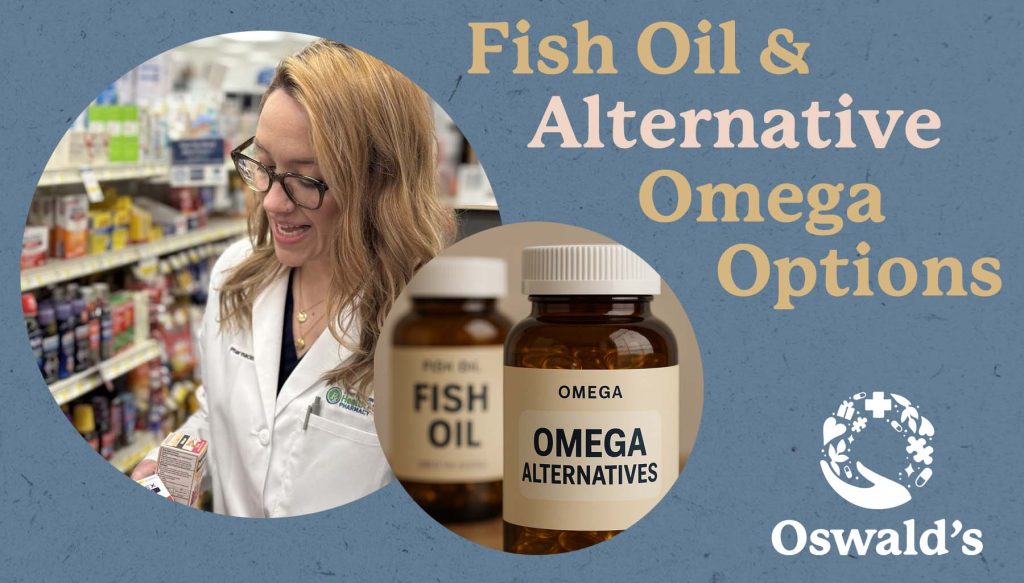The words “fish oil” invoke a particular disgust response in me every time I hear them. As a non-fish eater, I get annoyed by the onslaught of supposed health benefits of eating fish and/or taking fish oil supplements. I wanted to dive into what’s good, what’s bad, and if there are any options out there for those of us who may be vegetarian or don’t eat fish.
For decades, fish oil supplements have claimed to be beneficial for heart health, arthritis and joint health, cognitive function and vision. The bulk of these claims refer to the omega-3 fatty acids in fish oil. Omega-3 fatty acids are essential for cell structure and function and help reduce inflammation. The two key omega-3 fatty acids are docosahexaenoic acid (DHA) and eicosapentaenoic acid (EPA), and these are found in fatty fish (salmon, mackerel, sardines). Another form of omega-3 is alpha-linolenic acid (ALA). ALA is found in some plants (flaxseeds, chia seeds, walnuts, pumpkin seeds), and our bodies can convert ALA to DHA and EPA. Deficiencies in EPA and DHA can happen due to an imbalance in our diet since our body cannot produce these compounds.
When searching through fish oil/omega-3 supplements, we are bombarded with choices. There are even combination products with omega-3, omega-6, and omega-9 fatty acids. More should be better, right? Probably not. Omega-6 fatty acids are another group of essential fatty acids that are abundant in our diets. Even though our bodies cannot produce them, it’s rare to have a deficiency because they are EVERYWHERE. Omega-6 fatty acids are common in processed foods, fast food, and fried foods, and unfortunately, most people consume 20 times more omega-6 fats than omega-3 fats (which is far different from our ancestors where this ratio was closer to 1:1). It is thought that due to this shift in consumption, omega-6 fatty acids are sometimes seen as more harmful than beneficial. Some studies have even shown excessive omega-6 fat intake can lead to inflammation and increase risk of obesity.
In general, experts agree that eating a healthy, balanced diet containing omega-3 fats and omega-6 fats (in moderation) is better than taking a fish oil supplement. For those such as myself who do not eat fish, paying close attention to my consumption of ALA sources is important for ensuring adequate intake of omega-3 fats. As a last resort, there are algae-based omega-3 supplements for vegetarians, vegans, or those who cannot tolerate fish or fish oil. Please reach out to your friendly pharmacist here at Oswald’s or your physician with any questions about supplementation. of an overworked liver. We are excited to offer this new one-on-one service and are hoping it will truly make a difference in the health and lives of our customers. Please reach out to us here at Oswald’s for more information! ꝶ
Tags: algae-based supplements, anti-inflammatory, DHA EPA ALA, fish oil substitute, fish-free omega-3, heart health, joint health, Naperville health tips, natural supplements, omega-3 alternatives, Oswald's Pharmacy, pharmacist advice, plant-based omega-3, vegan omega-3, vegetarian supplements


